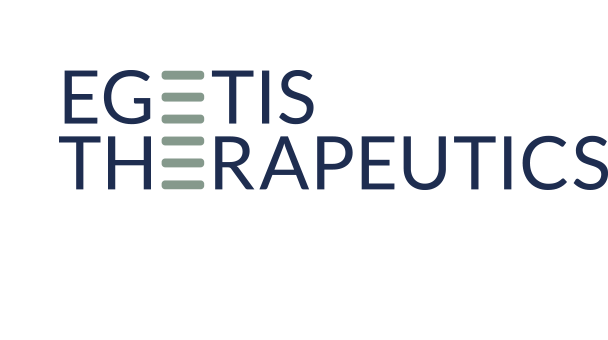PLEDPHARMA PRESENTS NEW IN-DEPTH FOLLOW-UP DATA FROM PLIANT STUDY – PLEDOX® SHOWN TO REDUCE CHEMOTHERAPY-INDUCED PERIPHERAL NEUROPATHY BY 75 PERCENT
December 1, 2015
PledPharma AB Company Announcement PLEDPHARMA PRESENTS NEW IN-DEPTH FOLLOW-UP DATA FROM PLIANT STUDY - PLEDOX® SHOWN TO REDUCE CHEMOTHERAPY-INDUCED PERIPHERAL NEUROPATHY BY 75 PERCENT At the Redeye Investor Forum tonight in Stockholm, PledPharma AB's (Publ) CEO Jacques Näsström will present new in-depth long-term data from a preliminary interim analysis of the ongoing follow-up phase of the company's pivotal Phase IIb study PLIANT of PledOx®. Importantly, this data show that 24 weeks after completion of treatment PledOx® reduces the incidence and intensity of chemotherapy induced neuropathy by 75 percent compared with placebo. The difference was statistically significant (p <0.01). Stockholm, 2015-12-01 08:30 CET (GLOBE NEWSWIRE) -- Earlier this year, PledPharma presented results from PLIANT showing that PledOx® reduces the appearance of nerve damage symptoms by 43 percent compared to placebo during treatment. These results were based on the treating doctor's assessment of the severity of the symptoms. However, the long-term data now being presented are based on the patients' own assessments of symptoms and show that the effect of pretreatment with PledOx® is even more pronounced at 24 weeks post treatment. Treatment by PledOx® with a 5 µmol / kg dose was found to keep the symptoms stable at a low level during the first 24 weeks after completion of treatment, while the placebo group showed increased neuropathy. Patients in this dosage group estimated the magnitude of neuropathy to be 62 percent lower than patients in the placebo group at week 12, and 75 percent lower at 24 weeks after completion of chemotherapy. The difference is statistically significant (p<0.01 at 24 weeks and p<0.05 at 12 weeks). For the group receiving the placebo the incidence and severity of symptoms increased significantly until week 12 and then levelled out at a high level. "These new and more detailed long-term results from PLIANT study increase the possibility of establishing PledOx® as a future standard treatment to avoid permanent nerve damage due to cytotoxic therapy in colorectal cancer. This can lead to more effective cancer treatment and a better quality of life for these long-suffering patients", said CEO Jacques Näsström. A detailed presentation of the above results is provided on the PledPharma webpage. A recording of the presentation on Redeye Investor Forum will be available on Redeye website, www.redeye.se FOR FURTHER INFORMATION, PLEASE CONTACT: Jacques Näsström, CEO PledPharma AB Phone: +46 73-713 09 79 E-mail: jacques.nasstrom@pledpharma.se ABOUT THE STUDY PLIANT is a randomized double-blinded placebo-controlled phase IIb study with three parallel groups in which patients with advanced colorectal cancer received FOLFOX6 chemotherapy for up to eight treatment cycles and either PledOx® at a dose of 2 µmol/kg, 5 µmol/kg or placebo (a small portion of the patients were treated with 10 µmol/kg). The study was conducted at about thirty centres in Europe and the US, and included a total of 173 patients. The purpose of this study was to investigate whether pre-treatment with PledOx® decreased the frequency and severity of side effects related to FOLFOX6 treatment. The primary endpoint was the incidence of neuropathy (sensory disturbances), which was evaluated every two weeks during the first 16 weeks. The incidence of neuropathy was evaluated using three testing methods - Oxaliplatin Sanofi Specific Scale, Cold Allodynia Test and Leonard Questionnaire. The Cold Allodynia Test and Leonard Questionnaire were also used during the follow-up phase. In the Leonard Questionnaire, patients reporting include among other questions the incidence and intensity of tingling (pins and needles), pain triggered by cold and numbness in hands or feet respectively, on a scale from zero to five. Secondary endpoints included changes in the number of neutrophil granulocytes (a type of white blood cells) and thrombocytes (platelets). In addition, the patients were monitored to ensure that PledOx® treatment did not decrease the effect of the chemotherapy. FOLFOX is a very commonly used combination of the drugs folinic acid, 5-fluorouracil and oxaliplatin. ABOUT PLEDOX® PledOx® is developed to prevent nerve damage caused by chemotherapy in cancer treatment. The active ingredient calmangafodipir is a New Chemical Entity (NCE) and has been shown to protect human cells against oxidative stress; a condition caused by formation of reactive oxygen and nitrogen compounds during e.g. chemotherapy. Oxidative stress may, among other things, cause damage to the sensory nerves (neuropathy). PledOx® mimics the endogenous enzyme MnSOD, which represents the cell's intrinsic protection against oxidative stress. ABOUT NERVE DAMAGE CAUSED BY CHEMOTHERAPY IN COLORECTAL CANCER A large proportion of the patients undergoing treatment with the chemotherapy oxaliplatin, one of the components in FOLFOX, are bothered by symptoms (tingling, pain triggered by cold or numbness in the hands or feet) caused by nerve damage incurred in connection with cytotoxic therapy. After completion of treatment, it is common for these symptoms to persist and for the symptoms to worsen. This adverse reaction leads to that approximately 40 percent of patients need to reduce the chemotherapy dose during treatment and is the most common reason that cancer treatment with oxaliplatin has to be stopped early. This is a reversible problem for most patients, however, about 15-20 percent of patients experience a persistent problem that lasts a long time after end of treatment. Today there is no cure for neuropathy available. ABOUT PLEDPHARMA PledPharma develops new drugs that protect the body against oxidative stress – a condition that can be caused by chemotherapy and acetaminophen (paracetamol) poisoning. The company's most advanced project PledOx® reduces nerve damage associated with chemotherapy. The drug candidate Aladote™ is being developed to reduce the risk of acute liver failure associated with acetaminophen poisoning. The project PP-099 seeks to limit the damage that occurs to the heart muscle during myocardial infarction. PledPharma’s drug candidates are based on the further development of a substance that, for completely different purposes, already has been used by more than 200 000 patients. This may limit the development risk and simplify the approval process. PledPharma (STO: PLED) is listed on Nasdaq First North. Erik Penser Bankaktiebolag is the company’s Certified Adviser (phone: +46 8-463 80 00). For more information, see www.pledpharma.se PledPharma AB discloses the information provided herein pursuant to the Swedish Securities Markets Act and/or the Swedish Financial Instruments Trading Act

